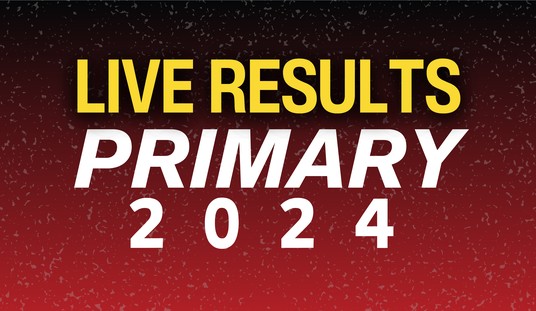Conservatives may be surprised to hear that for over 50 years they have been successful in stopping the growth of big government. Going all the way to the early 1950s Federal spending has hovered in a fairly narrow band around 20% of GDP.
But even that limited success is soon to be swamped by reality. For the Federal Government’s long-term projections show a radical change over the next 40 years, with Federal spending soaring close to 40% of GDP or more. This is due to our nation’s big entitlement programs – Social Security, Medicaid and Medicare. Counting state and local spending, total government spending in the U.S. would be over 50% of GDP.
If anything even close were to occur it would be a crushing defeat for conservatives and the end of any notion of limited government.
Conservatives are going to have to be smart about how to approach this coming crisis of big government or we will be routed. We never will halt this tidalwave by trotting out old, hopeless schemes to cut entitlement benefits. Asking conservative politicians to bear this burden only would condemn conservatism to a generation of failure.
Notice how liberals are dealing with this threatening entitlement tsunami. They are promising even more entitlements, such as government children’s health insurance, universal pre-K and the biggest entitlement of all, national health insurance.
Nor is the answer to give in and raise taxes, as even some conservatives are now saying will be necessary. Some, indeed, want to broker a grand deal with liberals for big entitlement cuts in return for huge tax increases to balance the long-term budget. Even if we do get any entitlement cut through such a deal, advocates of this approach will be asking conservatives to support what yet would be a huge increase in Federal spending, to around 30% of GDP or more, in return for an enormous, unprecedented tax increase to support such spending levels.
Recommended
Fortunately, in an article last October in BARRON’S Magazine, Peter J. Ferrara, of the new Supply Side Institute and the Institute for Policy Innovation, offers a better way. The solution, he argues, is to think outside the box of our current entitlement structures, and seek to reform these programs from the bottom up. By modernizing the programs to rely primarily on modern capital and labor markets, rather than old-fashioned, 19th Century, tax-and-spend redistribution, we actually can serve the beneficiaries of these programs far better, with only a fraction of the government spending on the current programs. Indeed, Ferrara argues, with such fundamental, modernizing reforms, we can not only stop the coming explosion in government spending but actually reduce that spending to substantially less than the current level of 20% of GDP.
For example, Ferrara emphasizes the shocking success of the 1996 reforms of the old Aid to Families with Dependent Children (AFDC) welfare program. Based on concepts developed by my long-time friend and Reagan welfare guru, the late Robert Carleson, AFDC was “block granted” back to the states. This means the share of Federal spending on the program was sent back to each state to be used for a new welfare program designed by each state based upon required work for the able bodied.
The key is that the Federal block grant for each state is finite and does not vary depending on how much the state spends. If the state welfare program costs more the state must pay for the extra expense. If the state welfare program costs less then the state keeps the savings.
The required work for the able bodied has been powerful in moving people off the welfare rolls. But even more powerful have been the new incentives for state bureaucrats resulting from the finite block grants. Under the old system, where Federal funds were increased to match whatever the state spent, signing up new welfare recipients at the state level meant bringing more Federal funds to the state. But with the state itself paying for any extra expenses, or keeping any savings, state bureaucrats moved aggressively to get welfare recipients into jobs. The end result was that the number of welfare recipients under the old AFDC system was reduced by an astounding 60%.
This same system should now be expanded to the other Federal welfare programs across the board, most importantly budget-busting Medicaid, but also food stamps, housing subsidies and others. The states then could use all these block-granted funds for new welfare systems based upon work for the able bodied, bringing in modern labor markets to provide most of the support for previous dependents. Besides getting the poor into real world jobs, where over time they can climb into the middle class, the new system also can provide vouchers for private health insurance vastly superior to Medicaid, and even help with private home ownership vastly superior to public housing.
Ferrara also advocates personal accounts for Social Security, in which workers would save and invest part of their taxes in modern capital markets. These market investments would provide workers with a much better deal and higher benefits than the current, old-fashioned Social Security framework can promise, let alone pay. Such accounts are also enormously powerful in reducing government spending, because they shift huge swaths of such spending out of the public sector altogether and into the private sector.
These accounts could start by replacing Social Security retirement benefits. They eventually could be expanded at the choice of each worker to provide for private life and disability insurance to replace Social Security survivors’ and disability benefits. The accounts eventually could be expanded to cover the payroll tax financed portion of Medicare, producing an annuity in retirement that could be used to purchase private health insurance, which also would be a better deal than Medicare.
Such personal accounts would reduce Federal spending by well over 10% of GDP. At the same time, they would transform the payroll tax from a tax to a wealth-building asset owned and controlled within each family. What a revolution that would be for the personal prosperity of working people.

























Join the conversation as a VIP Member